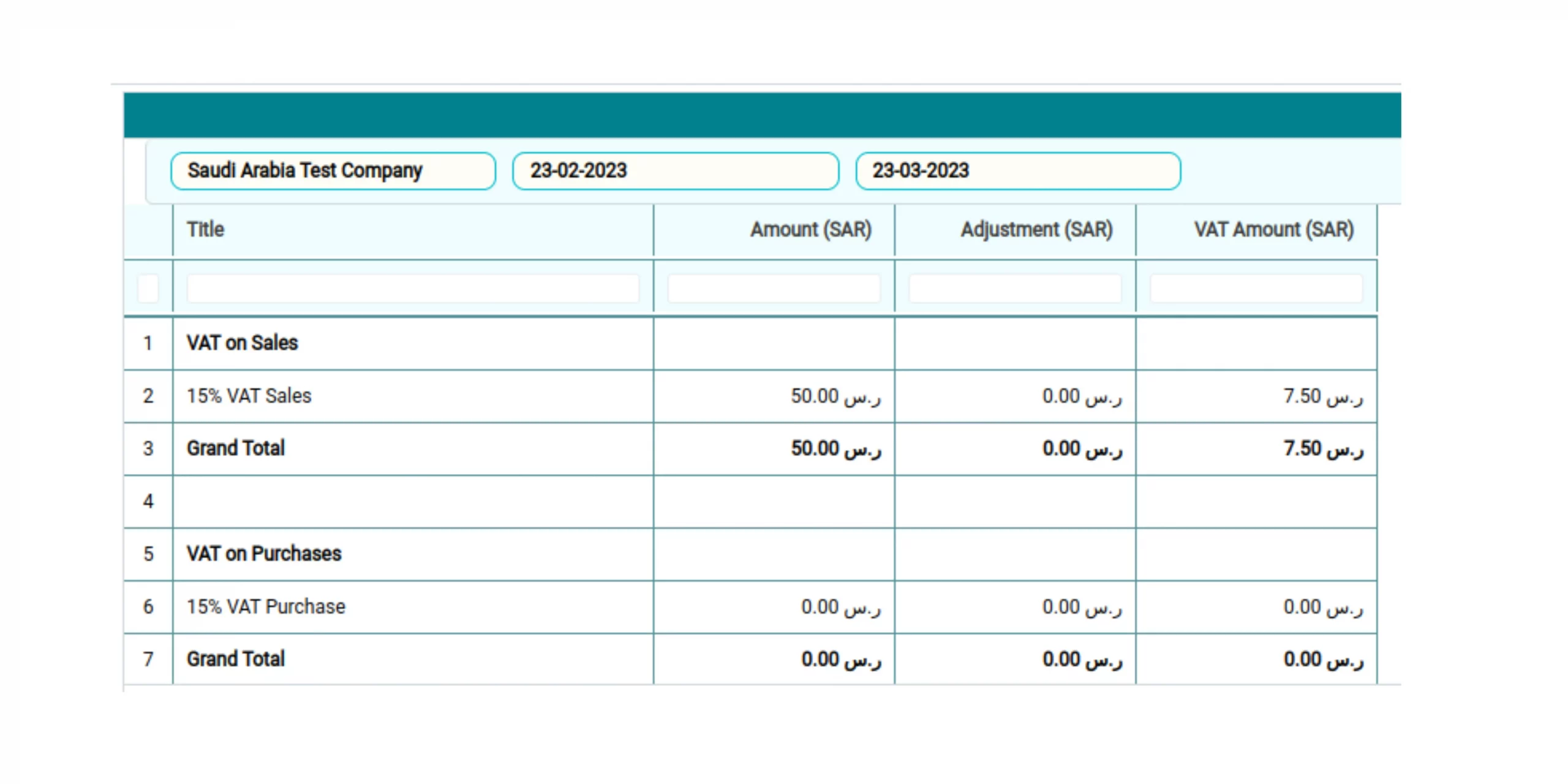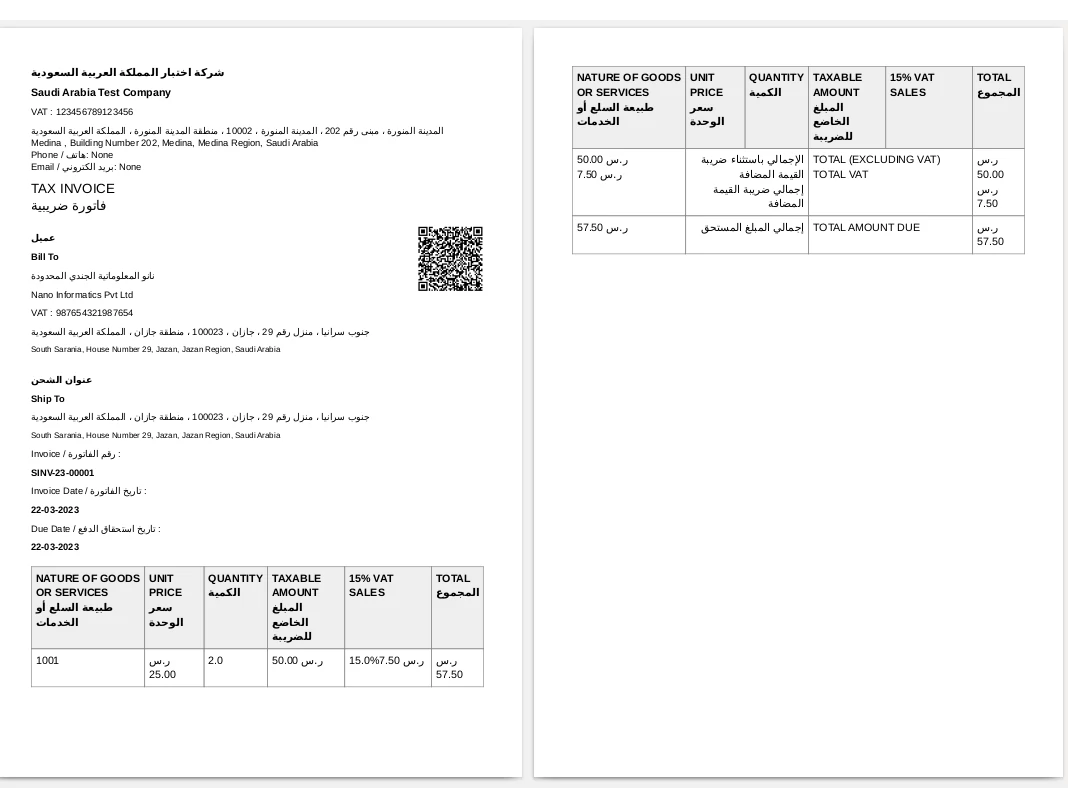VAT in Saudi Arabia
VAT in Saudi Arabia
Value Added Tax (VAT) was introduced in Saudi Arabia on January 1, 2018, as part of the government’s efforts to diversify the country’s revenue sources and reduce reliance on oil exports. VAT is a consumption tax that is imposed on goods and services at each stage of the supply chain, with the final burden of the tax ultimately falling on the end consumer.
The standard rate of VAT in Saudi Arabia is currently 15%, which is one of the highest rates in the world. However, there are certain goods and services that are exempt from VAT, such as healthcare, education, and financial services.
VAT registration in Saudi Arabia
To registers a business in Saudi Arabia, follow the below mentioned process:
- Register for Tax Identification Number (TIN)
- Login to the GAZT portal
- Select the option VAT registration from the dashboard
- Provide the details and documents for finishing VAT registration.
- Declaration
Businesses that are required to register
Businesses that are required to register for VAT include those with annual revenues exceeding SAR 375,000 (approximately USD 100,000), as well as businesses that provide taxable goods and services to customers in Saudi Arabia. Registered businesses are required to charge VAT on their taxable supplies, and must file VAT returns and pay any VAT owed to the government on a regular basis.
The implementation of VAT in Saudi Arabia has led to some challenges for businesses and consumers. Businesses have had to adjust their pricing structures and accounting systems to comply with the new tax, while consumers have seen an increase in prices for goods and services. However, the government has also provided support to businesses to help them adjust to the new tax, and has implemented measures to mitigate the impact of the tax on low-income households.
Despite these challenges, the introduction of VAT has helped to increase government revenues and promote fiscal sustainability. The government has stated that it plans to use the additional revenues generated by VAT to fund public services and infrastructure projects, and to support economic diversification and development.
In conclusion, VAT is an important part of the Saudi Arabian tax system, and has helped to promote fiscal sustainability and economic diversification. While its introduction has led to some challenges, the government has taken steps to mitigate the impact of the tax on businesses and consumers, and the benefits of the tax are expected to outweigh the costs in the long run.
What are Taxable and non-taxable supplies under KSA VAT Saudi Arabia
Standard-rated supplies: All products or services delivered in Saudi Arabia are eligible for 5% VAT unless they are marked as exempt or zero-rated. Some instances of standard-rated supplies contain:
- Food and beverages
- Private healthcare and educational services
- Local transportation
- Rent and sale of commercial buildings
- Sale of residential buildings
Exempt supplies: Goods and services that are specified as exempt will not have to pay VAT. Some of the examples of exempt goods and services are:
Residential rent (leasing and renting of the residential property)
Specific financial services
- Zero-rated supplies: Zero-rated supplies consist of a 0% VAT rate and include:
- Non-GCC exports
- International transport
- Medicines and medical goods
- Investment in certain metals like gold, silver or platinum
Keeping track of each compliance activity, preparation of records, returns, paying taxes on time, etc. will require a considerable investment of time, employees and energy to do these tasks manually. It is, hence, very important for businesses to evaluate the various software available and select an appropriate software that will ease the compliance activities and leave you with enough time and resources to focus on your business.
For tax practitioners also, this is a crucial period to learn, understand and prepare for VAT and the compliance activities which will arise with the implementation of VAT. It is important for them to prepare themselves, their teams as well as their clients for VAT.
While history is being made in Saudi Arabia with the implementation of VAT, this is the opportunity for businesses to capitalise on the new business environment under VAT through adequate preparation and planning.
Streamline your compliance party with ACCU360 ERP.
ACCU360 is fully ready ERP software you can easily handle all the requirement like VAT and Zakaat and integration with ZATCA portal.
Here you can see the VAT invoice from ACCU360 ERP and its report.
KSA Invoice from accu360 erp 
Saudi Arabia Vat Summary Report

Saudi Arabia Vat Summary



